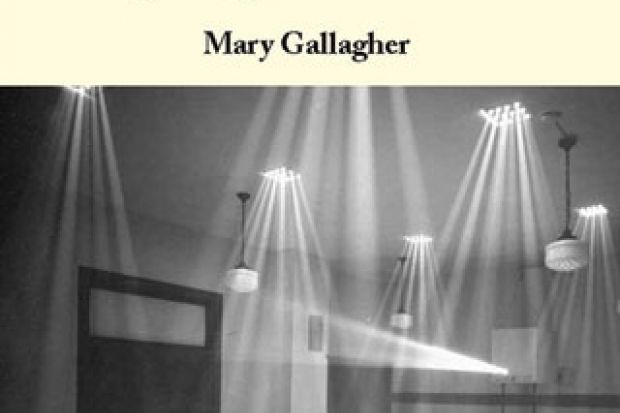It is a worrying indicator of the current mood of Irish higher education that when I was invited to review this book, my reflex was to ask myself, “Uh-oh, can I get in trouble for this?” Maybe I am a rather lily-livered example of an academic. But more likely, Mary Gallagher’s chilling assertions felt so real to me that I needed to wonder if exposing any hint of my own discontent in “the sector” would come back to bite me, given how archly managerial it has become. Under the current workload terms of the Public Service Agreement my “liability” is steep. (A whopping 18 contact hours a week can be demanded.) One of Gallagher’s basic assertions is that higher education lecturers are becoming so choked by the gathering vapours - call it odeur de bureaucracy - of performance management, rationalisation, streamlining and so on, that we are losing the will, and maybe the courage, to speak our minds. I do not think she is wrong.
Another of her assertions is that, while increased access to higher education is an emotionally appealing thing to those of us who cherish the spread of knowledge, we run the risk of engaging in a kind of subprime education when we, perhaps subconsciously, heed mandates to attract ever- increasing numbers of students. Gallagher informs her readers of what most of us know: in Ireland as elsewhere, funds are set to attach to graduates, not just entrants. The potential result of so much influx is, of course, lower standards of attainment.
But her central assertion is that higher education, if it is to be genuinely higher, should be more intellectual than vocational in emphasis and that, conversely, higher education better fulfilled its mission back when - free of irony - its lecturers felt vocational, not strictly intellectual, and certainly not retail driven. Gallagher’s concern is that societies around the world have become so anxious about losing any further economic ground that they are generating cynical systems of affiliation that lucratively “sell” education as a remedy to underemployment. And many millions are buying.
The risk of educational salesmanship to those of us who teach is that we will lose our souls in plying our wares. Meanwhile the general public, much as it is encouraged to perceive degrees as practical accoutrements, desires higher education to maintain its loftiness. It wants The Firmament to shine above. My own institution in Dublin holds impressively ceremonious conferrals in a nearby cathedral. Much grandeur, many photographs. The tug of war between idealism and efficiency may continue for some time.
Some days I find it hard to summon the evangelical zeal that I brought to the profession 20 years ago. I yearn for a trusting society that lets me get on with the business of challenging its sons and daughters to challenge themselves, to gladly dwell in a state of enquiry - a wealthy state indeed. But the burgeoning business model of higher education has, as Gallagher writes, yielded a scenario in which universities are “vying with one another to attract students to their product: their friendly staff, their campus experience, the promised buying power of their qualifications”.
Other days, I fortify myself: if the hand that rocks the cradle rules the world, so too may the hand that wields the whiteboard marker. I teach a module on rhetoric. For the past few years my classes have debated the proposition “that students are customers”. It is an exhilarating exercise that I feel perfectly free to conduct out loud. No sheriff or deputy has demanded that I lay down my marker. That’s a good sign, right?
Unfortunately, this book’s title may be too “fringe” for it to reach the educational “consumers” who most need its insights. But for me it was an excellent self-help book. Its central diagnosis of a vital organ succumbing to the creeping pathology of efficiency-itis offered reassurance that I am not an occupational hypochondriac.
Academic Armageddon: An Irish Requiem for Higher Education
By Mary Gallagher
The Liffey Press, 250pp, £17.95
ISBN 9781908308054
Published 20 November 2012
Register to continue
Why register?
- Registration is free and only takes a moment
- Once registered, you can read 3 articles a month
- Sign up for our newsletter
Subscribe
Or subscribe for unlimited access to:
- Unlimited access to news, views, insights & reviews
- Digital editions
- Digital access to THE’s university and college rankings analysis
Already registered or a current subscriber? Login




